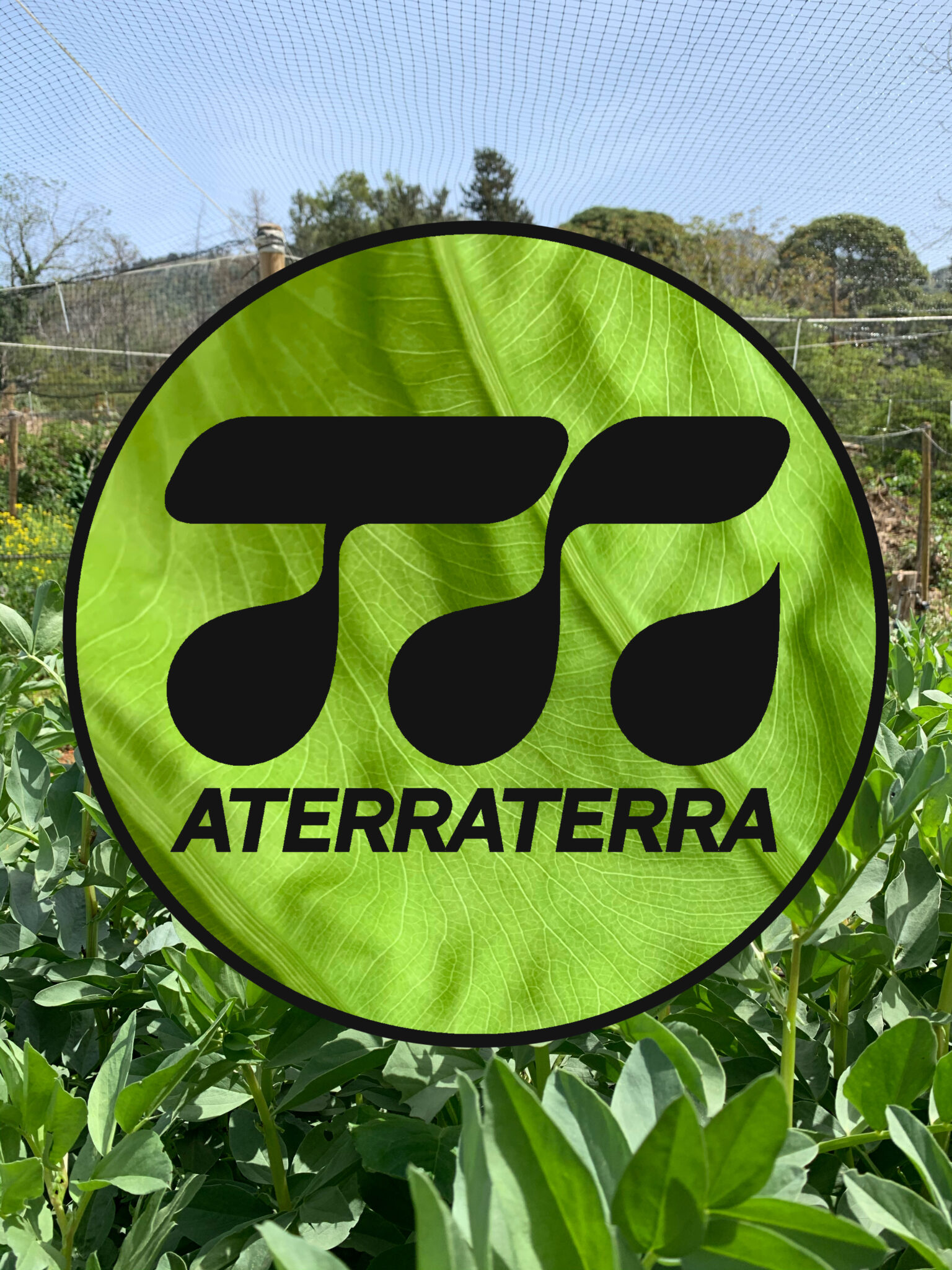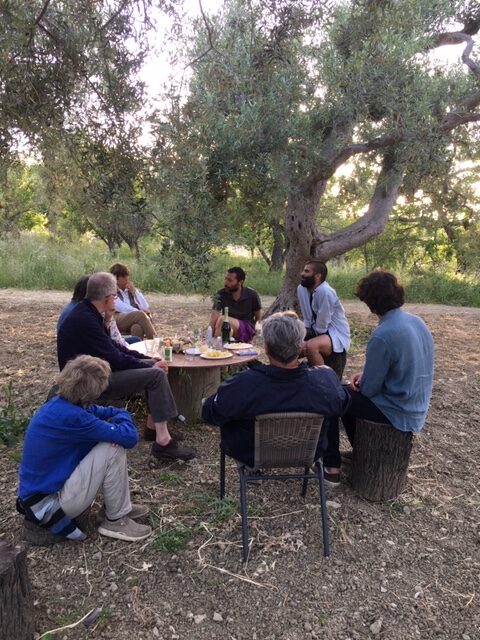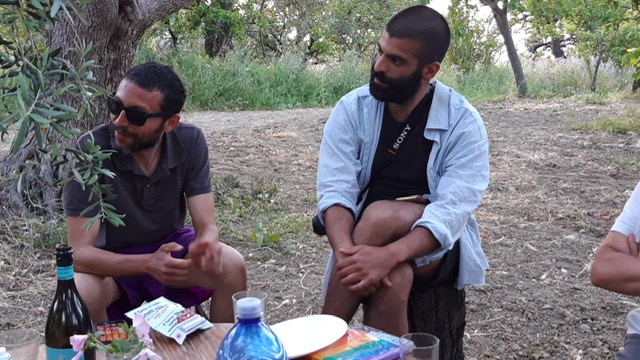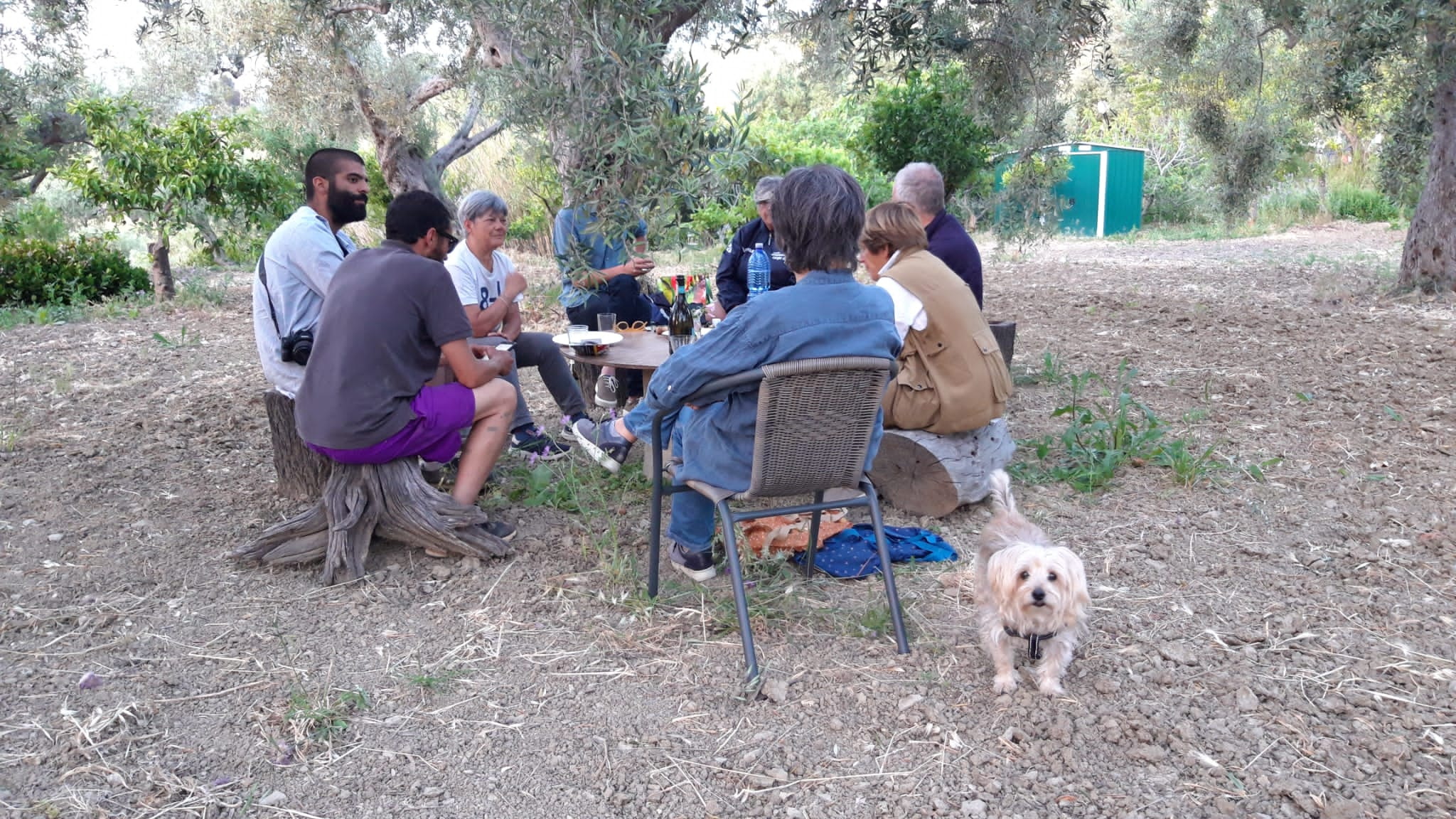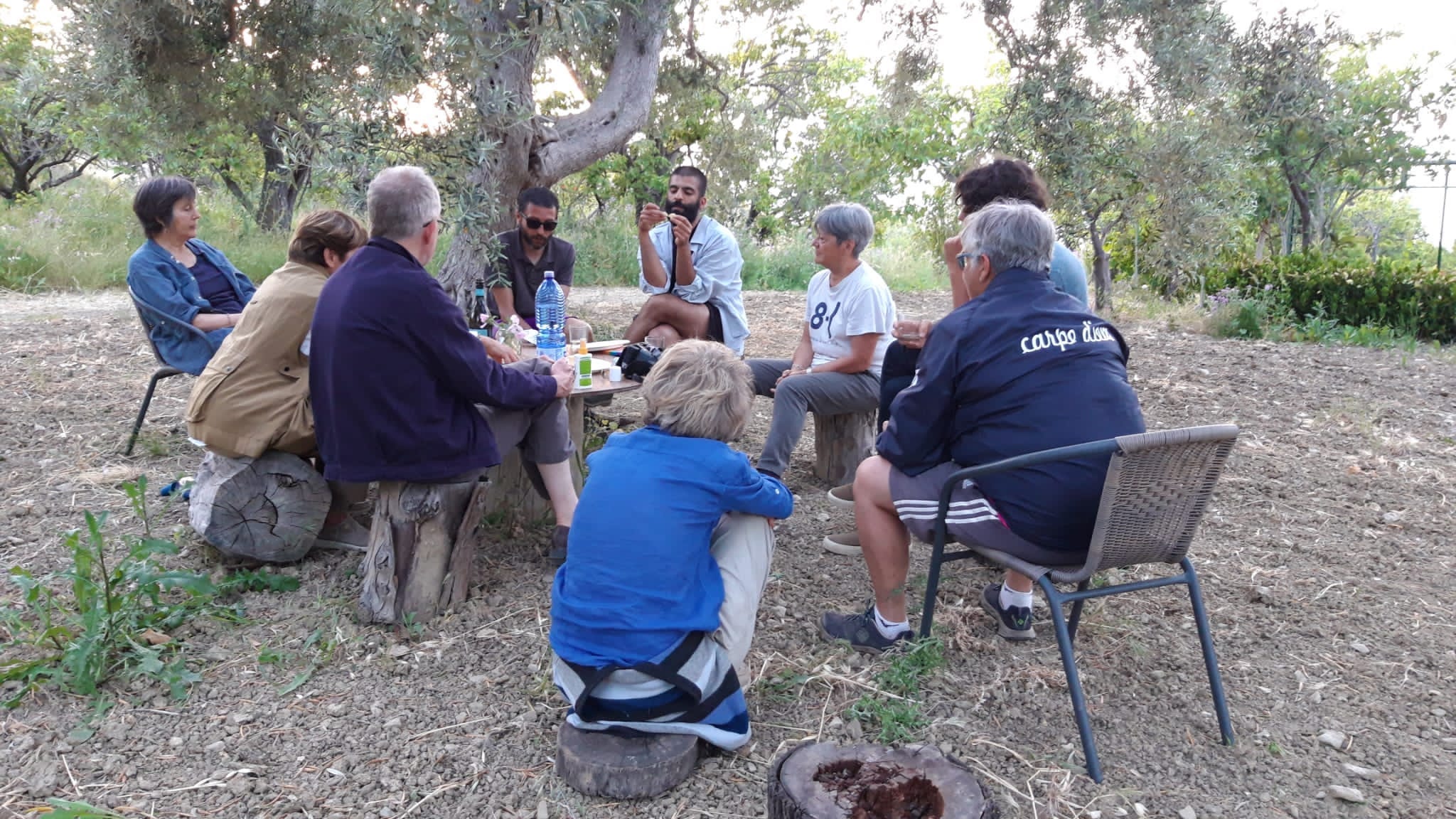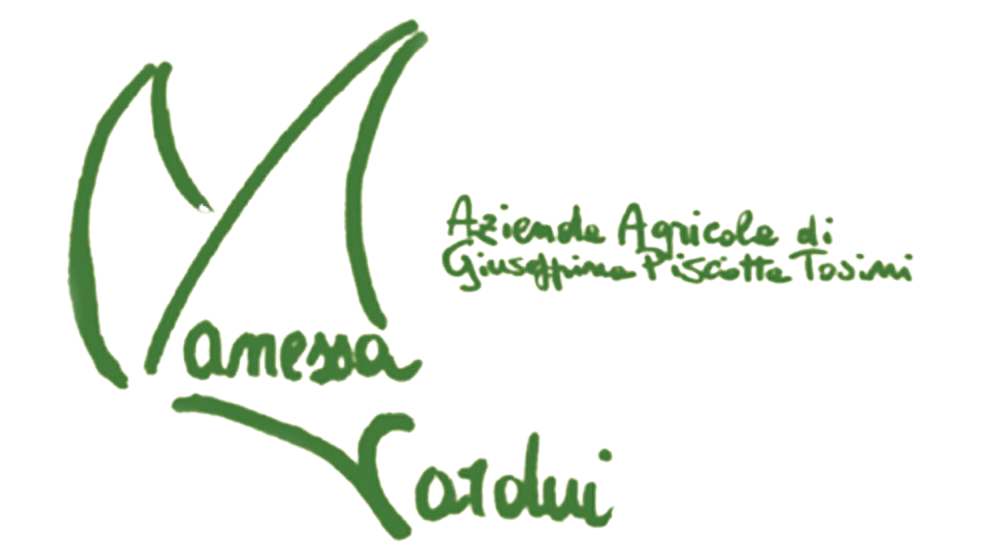May 23, 2021
On the occasion of the artist residency of the Aterreterra collective (Luca Cinquemani and Fabio Aranzulla).
During the first symposium of the artist residency project, held at the Vanessa Cardui farm under the great olive tree, a rare atmosphere immediately took shape—one that arises when a group of people gathers to think together. This, in essence, is the foundation of creation, further enriched by the presence of the two artists. The dialogue with nature is an open field, a journey leading us somewhere unknown.
Fabio – When we started mapping the land, we asked ourselves why we were doing it. Then we realized that if we managed to create a small garden that didn’t exclude other living beings, that alone would be a success. But we can’t know in advance, because the process can’t be controlled.
Luca – Here, we work in an agricultural area, and if you look under the trees, you’ll find pockets of biodiversity—tiny seeds carried by birds. Our small garden grows beneath the olive tree, alongside other forms of life, like a little ruscus and a young oak that wouldn’t have sprouted if their seeds had fallen in the middle of the field. It would be wonderful if observing the relationships between plants could also catalyze human connections.
Fabio – It’s fascinating how a discussion about a single seedling brought us humans together. Last night, another connection was made—a fox passed by the house and climbed up the mulberry tree.
Maria Rosa – I shared the first loquats with the birds, eating only half while leaving the rest on the tree.
Fabio – That’s very much the same principle that guides our garden. Here, the birds eat the fruit alongside us, creating a direct link between us and them. By leaving some fruit for them, we stay connected. That’s the essence of sharing. I remember my grandfather used to hang CDs to scare the birds away.
Luca – Maria Rosa, when you mentioned early human gatherers and the transition to agriculture, it made me think—next time, I’d like to bring an Aztec black chili, and Fabio could bring an agave. Take Inula, for instance—it hosts parasites that attack the olive fly, helping to protect the trees. It’s the cycle of integrated pest management. The more plants there are, the more insects appear, creating a network of solidarity among species. Observing plant-insect relationships fosters an awareness that transforms both the way we cultivate and the way we engage with complexity. But this requires a kind of observation that borders on contemplation.
Pippi – I resonate with these ideas because this space was created for exactly this purpose. And the donkeys can graze on the lower branches of the olive trees, keeping them free and happy. It’s a kind of control that follows nature’s rhythms.
Maria Rosa – Art plays a role in deepening this awareness.
At the end of the gathering, one participant wrote:
“It was a beautiful and harmonious experience to be together, feeling the energy under the olive trees with the almost-full moon above.”
Aterraterra fot Azienda
Agricola Vanessa Cardui,
Comune di Collesano (PA)
May 23, 2021, under the great olive tree.
